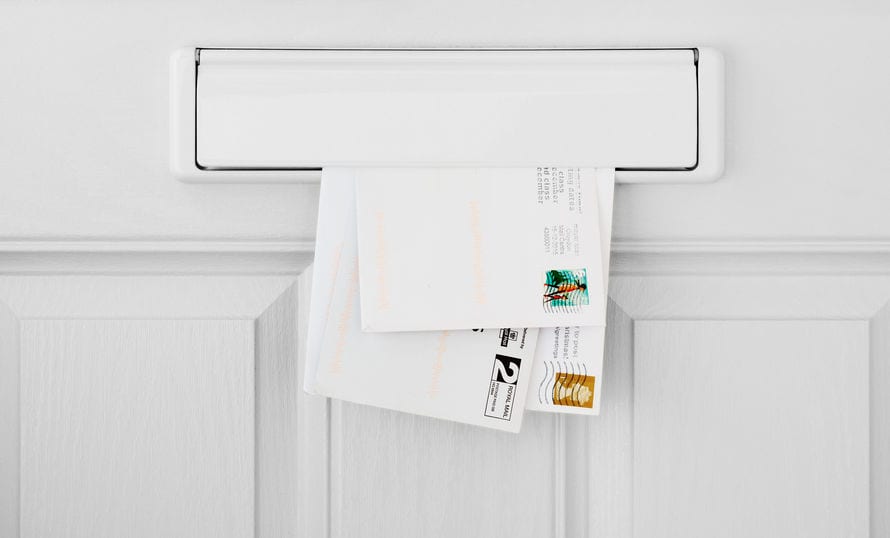Why Did the IRS Send Me Notice CP136?
The IRS mails a CP136 notice to employers to notify them of a balance due, underpayment, or other discrepancy for payroll related taxes they reported on Form 941.
Employers may also receive a CP136 if payroll deposit requirements have changed, including how often they must deposit.
Employers submit Form 941 quarterly tax returns to the IRS to report federal income tax withheld from employee wages and employee/employer share of Medicare and Social Security taxes.
What Is the “Lookback Period” for Payroll Taxes?
The “lookback period” for payroll tax liability is the previous 12 months (total taxes from the last four 941s). The total tax amount from this period is then used to determine future deposit schedules.
Separate from this lookback period, the IRS can “look back” to review and identify payments missed by employers.
Generally, this period is three years from when the original tax return was filed or due to be filed.
Exceptions to the three years include:
- When more than 25% of payments due was omitted, the IRS may extend the review period to six years.
- When an employer fails to file or submits a fraudulent return, the review period becomes indefinite.
Payroll tax returns each have a specific review period based on filing dates. For example, Form 941 is due on January 31st, April 30th, July 31st, and October 31st of a given tax year.
If an employer did not file a 941 on April 30th, the review period would extend three years from that date.
What Is My Payroll Tax Deposit Schedule?
Owe Less than $50,000 for Payroll Taxes
Employers with a payroll tax liability less than $50,000 for the previous 12 months must deposit payroll taxes by the 15th of the next month.
Owe Between $50,000 and $100,000 for Payroll Taxes
Employers with a payroll tax liability between $50,000 and $100,000 for the previous 12 months must deposit payroll taxes semi-weekly. Payroll taxes are deposited according to company paydays.
For example, if a company’s payday is on Wednesday, Thursday, or Friday, the employer must deposit taxes by the following Wednesday. When paydays fall on Saturday, Sunday, Monday, or Tuesday, payroll tax deposits must be made by the following Friday.
Owe More Than $100,000 for Payroll Taxes
Most small to midsize businesses deposit monthly or semi-weekly. Larger businesses with a payroll tax liability over $100,000 for any month, however, must deposit payroll taxes by the following business day and then semi-weekly through the next year.
When Can the IRS Change My Payroll Tax Deposit Schedule?
Increase in Tax Liability
If an employer’s quarterly tax liability for the lookback period exceeds certain thresholds, the IRS may change their deposit schedule to be more frequent.
New Company
The IRS assigns new business owners a deposit schedule by estimating their expected tax liability. The schedule can be adjusted later to reflect their actual liability.
Request a Change
Companies may ask the IRS to change their deposit schedule if they expect an increase or decrease in future payroll tax liabilities.
Notification from IRS Audit
Companies may receive a notice informing them that the IRS has changed their deposit schedule due to discrepancies discovered during an audit.
Do I Make Payroll Tax Deposits Electronically?
Nearly all employers must deposit payroll taxes through the Electronic Federal Tax Payment System (EFTPS). Employers can register for EFTPS at https://eftps.gov/eftps/ and then make deposits online.
EFTPS facilitates the deposit of payroll taxes by automatically scheduling them. However, some small businesses with limited tax liability or operating in some US territories may be unable to use EFTPS. In this case, the IRS has other online payment options that accommodate such businesses.
If your quarterly payroll taxes are less than $2,500 you can send your deposit voucher with your 941 form. This is the only exception to electronic deposits.
Is There a Penalty for Late Payroll Tax Deposits?
Yes, the IRS penalizes late deposits. Penalty amounts depend on how late a payment is, amount owed, and business size.
When deposits are one to five days late, the IRS charges a 2% penalty on the late deposit amount. Payments six to fifteen days late are penalized at 5%. Payments over 16 days late have a 10% penalty.
An employer receiving an IRS notice about late payroll deposits who does not make a deposit within 10 days of getting the notice must pay an additional 15% of the amount owed.
Does the IRS Have a Record Of My Payroll Tax Deposits, or Do I Need to Submit a Copy of My Payments With Form 941?
The IRS maintains records of payroll tax deposits through the EFTPS, so you will not need to submit a copy of what you paid.
However, you should keep a copy of your payroll tax deposits for your own records in case the IRS claims you missed a payment.
What Do I Do If the IRS Doesn’t Have My 941 Form or the Tax Liability In My CP136 Notice Is Not Correct?
Employers should always confirm payroll records to make sure they filed Form 941 and paid the correct amount of taxes. You do not want to be hit with a penalty for late or missing deposits if you made them.
Need more help? You can start online by answering 6 simple questions.
6 Simple Questions. Free Evaluation.

